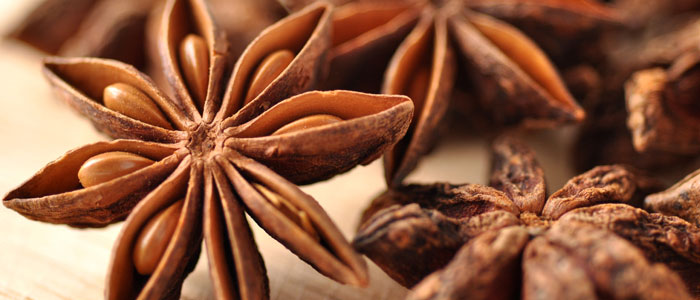- Anise is a herb. The seed (fruit) and oil, and less frequently the root and leaf, are used to make medicine.
Contents
Uses
- Upset stomach
- Intestinal gas
- Runny nose
- Expectorant to increase productive cough
- Diuretic
- Appetite stimulant
- Increase milk flow when nursing
- Start menstruation
- Treat menstrual discomfort or pain
- Ease childbirth
- Increase sex drive in Women
- Men use anise to treat symptoms of “male menopause.”
- Seizures
- Nicotine dependence
- Trouble sleeping (insomnia)
- Asthma
- Constipation.
- Some people apply anise directly to the skin to treat lice, scabies, and psoriasis.
- In foods, anise is used as a flavoring agent. It has a sweet, aromatic taste that resembles the taste of black licorice. It is commonly used in alcohols and liqueurs, such as anisette and ouzo. Anise is also used in dairy products, gelatins, meats, candies, and breath fresheners.
- In manufacturing, anise is often used as a fragrance in soap, creams, perfumes, and sachets.
Benefits
- There are chemicals in anise that may have estrogen-like effects. Chemicals in anise may also act as insecticides.
Cautions
- Anise is LIKELY SAFE for most adults when taken by mouth in amounts typically found in foods. There isn’t enough information available to know if anise is safe to take by mouth in medicinal amounts.
- Pregnancy and breast-feeding: Anise is LIKELY SAFE for pregnant and breast-feeding women when used as part of a normal diet. It’s not known whether it’s safe to use anise in larger medicinal amounts during pregnancy or when breast-feeding. Stick to food amounts.
- Children: Anise is LIKELY SAFE for most children when taken by mouth in amounts typically found in foods. It is POSSIBLY SAFE when applied to the scalp in combination with other herbs, short-term. There isn’t enough information available to know if anise is safe to take by mouth in medicinal amounts.
- Allergies: Anise might cause allergic reactions in some people who are allergic to other plants that are similar to anise. Plants that are similar to anise include asparagus, caraway, celery, coriander, cumin, dill, and fennel.
- Hormone-sensitive condition such as breast cancer, uterine cancer, ovarian cancer, endometriosis, or uterine fibroids: Anise might act like estrogen. If you have any condition that might be made worse by exposure to estrogen, don’t use anise.
Interactions
Moderate Interaction Be cautious with this combination:
- Birth control pills (Contraceptive drugs) interacts with ANISE: Some birth control pills contain estrogen. Anise might have some of the same effects as estrogen. But anise isn’t as strong as the estrogen in birth control pills. Taking anise along with birth control pills might decrease the effectiveness of birth control pills. If you take birth control pills along with anise, use an additional form of birth control such as a condom.
- Some birth control pills include ethinyl estradiol and levonorgestrel (Triphasil), ethinyl estradiol and norethindrone (Ortho-Novum 1/35, Ortho-Novum 7/7/7), and others.
- Estrogens interacts with ANISE: Large amounts of anise might have some of the same effects as estrogen. But large amounts of anise aren’t as strong as estrogen pills. Taking anise along with estrogen pills might decrease the effects of estrogen pills.
- Some estrogen pills include conjugated equine estrogens (Premarin), ethinyl estradiol, estradiol, and others.
- Tamoxifen (Nolvadex) interacts with ANISE: Some types of cancer are affected by hormones in the body. Estrogen-sensitive cancers are cancers that are affected by estrogen levels in the body. Tamoxifen (Nolvadex) is used to help treat and prevent these types of cancer. Anise seems to also affect estrogen levels in the body. By affecting estrogen in the body, anise might decrease the effectiveness of tamoxifen (Nolvadex). Do not take anise if you are taking tamoxifen (Nolvadex).
Other Names
Anis, Anís, Anis Vert, Aniseed, Anise Essential Oil, Anisi Fructus, Graine d’Anis Vert, Huile Essentielle d’Anis, Phytoestrogen, Phyto-Œstrogène, Pimpinella anisum, Pinella, Semen Anisi, Shatpushpa, Sweet Cumin, Velaiti Saunf.
References
Source: WebMD, “Anise”, www.webmd.com/vitamins-supplements/

